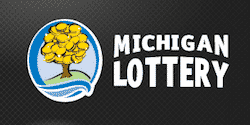Michigan Gambling
The Michigan gambling industry thrives today with legal online gambling and sports betting, more than two dozen land-based casinos, horse racing, daily fantasy sports and an online lottery all on offer.
The state legalized mobile sports betting, online poker and online casinos in 2019 to make Michigan one of the most gambling friendly states in the Union. Gamblers and bettors have a wide range of options that are 100% legal. Most gambling activities in the Great Lakes State are regulated by the Michigan Gaming Control Board (MGCB).
Legal Michigan Gambling Sites
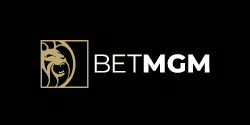
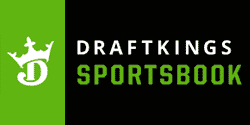

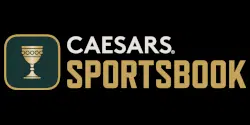
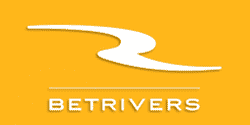


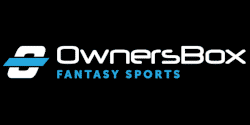


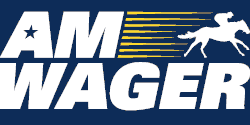
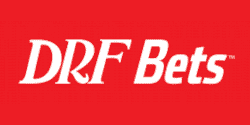
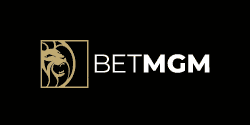
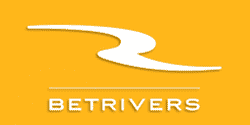
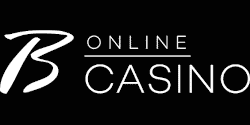
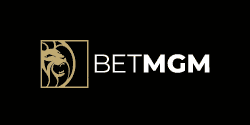
21+ and present in MI. T&Cs Apply. Gambling Problems? Call 1-800-270-7117 for confidential help.
The full list of legal MI gambling activities includes:
- Casino Gambling: Online and land-based
- Poker: Online and in-person
- Sports Betting: Online/mobile sportsbooks and in-person betting
- Fantasy Sports: Online and in-person
- Horse Racing Betting: Online and in-person
- Lottery: Online and in-person
- Bingo: In-person
- Games of Skill: Online and in-person
Michigan Online Gambling
Online gambling is now legal in Michigan thanks to legislation passed in the final days of 2019. Today, Michigan gambling laws allow land-based casinos to apply for licenses to offer online casino games, poker and sports betting to customers 21 or older across the state.
First Michigan Gambling Sites Launched in January 2021
After a long way, Michigan online gambling is here. The first Michigan online casinos and sportsbooks launched on January 22nd, 2021 after receiving the MGCB’s blessing to go live.
The MGCB originally estimated the state’s first batch of gambling sites would launch in Q1 2021, and that estimation ended up being right on the money. Michigan came out of the gate at full gallop on the first day with ten operators opening for business simultaneously. Most Michigan gambling sites offer a combination of online sports betting and casino games integrated into a single platform.
Licensed MI Online Gambling Apps
The Michigan Gaming Control Board began issuing licenses to online gambling and sports betting providers in December 2020. Fifteen operators or business-to-business suppliers have received licenses to date and ten are now live:
- BetMGM
- DraftKings
- BetRivers
- FanDuel
- PointsBet (sports betting only)
- Caesars
- TwinSpires
- Golden Nugget Casino
- Barstool Sportsbook and Casino
- WynnBET
With each casino eligible to operate one online gambling platform encompassing online gambling, poker, and sports betting, Michigan can support up to 26 individual brands at full capacity. Look for more operators to enter the Michigan market over time.
- Michigan Online Casinos
Other Online Gaming Options Are Available
Michigan law is amenable to most forms of online gambling. In addition to everything discussed above, Michigan also regulates fantasy sports, horse racing betting, online lottery games, and games of skill.
The following sites offer a variety of sports, skill-based and actual gambling games that are legal under Michigan law:
- Fantasy Sports: DraftKings and FanDuel
- Horse Racing Betting: TVG, TwinSpires, and Xpressbet
- Lottery: Michigan Lottery Online
- Games of Skill: WorldWinner
Michigan Casinos
Three commercial casinos in Detroit and 23 tribal casinos spread across the rest of the state call Michigan home today. Tribal groups pushed the issue back in the 80s and actually launched the first tribal casino anywhere in the nation right here in Michigan.
Commercial casinos were authorized through a referendum held in 1996 that asked voters if they approve the construction of three Detroit casinos. The vote passed by a narrow margin and the Michigan Gaming Control Board (MGCB) was established the following year to regulate the state’s newly-legal commercial casinos.
Brick and Mortar Michigan Casinos
Michigan and the Origin of Tribal Gaming in the USA
The story of tribal gaming in Michigan is an interesting one as it spurred the creation of what would later become a $32 billion plus industry spanning the country. Interestingly, it all began with a man who had nothing more than a garage, two homemade blackjack tables and a $10,000 loan from the local bank way back in 1983.
Fred Dakota had been laid off the year before from his tribal office job and had spent the last year collecting unemployment, seeking work and trying to figure out what to do. With unemployment in the area hovering around 40%, the early 80s were a bad time to find meaningful work.
It was around this time he recalled a previous year’s Keweenaw Bay Indian Community meeting that had resulted in the tribe drawing up gambling regulations in anticipation of launching a high stakes bingo game to pay for a housing construction project.
The original intent of the meeting was to form a regulatory framework for bingo, but attendees decided on a whim to regulate casino gambling as well because, why not?
Thinking back on the outcome of that meeting and with his options growing short, Fred Dakota decided to take a gamble. He spoke to his brother-in-law to secure some garage space, obtained a gambling permit from the tribe, got a $10,000 loan from the bank and built two blackjack tables by hand because money was so tight.
In the waning hours of 1983, Fred Dakota officially opened the country’s first tribal casino in his brother-in-law’s garage. The casino was a hit and shortly he was banking $1,000 a night. The casino proved so popular that Fred hired a construction company to build a new building just months after launching his humble garage-casino.
His personal casino operation would eventually be shut down after a series of expensive legal battles, but other tribal casinos took up the mantle and eventually won the right for Native Americans around the country to run their own casinos. As for Fred, he would later be invited to manage a nearby tribal casino that had opened after seeing his success.
Fred’s personal casino may have met an untimely end at the hands of unsympathetic courts, but it proved to be a catalyst of immense proportions that led to the establishment of tribal gaming in the USA. It is fair to credit Fred Dakota as the founder of Native American gambling in the USA.
Michigan Sports Betting
Retail sportsbooks and mobile betting came to Michigan courtesy of a law passed in December 2019. The first retail sportsbooks at casinos launched in March 2020 and online betting began in January 2021.
Ten mobile sportsbooks are live in Michigan today, and more are set to join the party over time.
- Caesars Sportsbook
- Golden Nugget Sportsbook
- Barstool Sportsbook
- WynnBET
Michigan sports betting law establishes a minimum age of 21 and allows customers to wager from anywhere within state lines. There is no need to be a state resident; anyone 21+ and physically present in Michigan may register, deposit and bet.
Read more:
Competitive MI Sports Betting Market Taking Shape
With a relatively low tax rate and reasonable licensing fees, Michigan is shaping up to have a competitive sports betting market that will provide gamblers with plenty of options.
Under the law, each of Michigan’s casinos may launch a retail sportsbook and online betting platform either on its own or in partnership with a third-party provider. Major sports betting brands such as BetRivers, DraftKings, PointsBet and many others have either already launched online sports betting platforms in Michigan or soon will.
Operators are not constrained by burdensome tax rates or regulations, which in turn results in bettors receiving generous promotions and competitive odds. If lawmakers crafted this legislation in order to allow legal MI betting sites to compete effectively against illegal offshore operators, they did a good job.
Michigan Sportsbooks: Retail In-Person Betting
- Island Resort & Casino Sportsbook
- BetMGM Sports Lounge at MGM Grand Detroit
- The Sportsbook at Hollywood Greektown
- FanDuel Sportsbook at MotorCity Casino
- River Rock Sportsbook & Grill at Little River Casino Resort
- Dacey’s Sportsbook at Firekeepers Casino
- Caesars Sportsbook at Turtle Creek Casino
Michigan Online Poker
Michigan legalized online poker in late 2019 as a part of the same gaming expansion package that also authorized online sportsbooks and casinos.
According to the law, land-based casinos in Michigan may each operate a single online gambling, sports betting, and poker brand. Each casino is permitted to partner with experience gaming companies. PokerStars was the first MI poker site to launch in early 2021 and was followed shortly after by BetMGM Poker. Additional operators such as Partypoker and 888 are likely to follow suit.
Reasonable tax rates and licensing fees should encourage numerous operators to enter the Michigan market and allow them to be competitive with unregulated offshore poker sites.
- Michigan Online Poker Sites
In-Person Poker: Michigan Poker Rooms
Michigan poker laws dictate that in-person poker may only be played at authorized casinos and charitable poker rooms that hold a Millionaire Party license. Home poker games are illegal and online poker is still a work in progress as the MGCB prepares regulations and licensing standards for online poker sites.
This leaves us with in-person poker as our only option right now. Fortunately, Michigan has an active live poker scene between the many casinos and charitable poker rooms spread across the state. The chances are if you’re reading these words from Michigan, there’s a poker room within reasonable driving distance.
Note: The following list is dedicated exclusively to poker games held at casinos. The locations of charitable poker rooms change on a regular basis.
| Lower Peninsula Poker Rooms | |
| Motor City Poker Room | Hollywood Greektown Poker Room |
| MGM Grand Poker Room | Firekeepers Poker Room |
| Gun Lake Poker Room | Odawa Casino Poker Room |
| Soaring Eagle Poker Room | |
| Upper Peninsula | |
| Bay Mills Poker Room | Island Resort Poker Room |
| Kewadin Casino Poker Room (Closed) | |
Michigan Daily Fantasy Sports
Daily fantasy sports and office pools are legal in Michigan due to the 2019 gaming expansion package. The major DFS sites operated openly in Michigan prior to the law, but now they are officially legal if licensed and are subject to standard consumer protection regulations.
The two biggest DFS sites in Michigan are:
- DraftKings
- FanDuel
The 2019 fantasy sports law also clarified the legality of informal leagues and office pools played among friends. Under the new law, individuals may host fantasy leagues without a license provided the following conditions are met:
- The contest is held solely from a private residence
- The contest is not offered to the general public
- Each contest is limited to no more than 15 participants
- The organizer of the contest collects no more than $10,000 in entry fees in any single calendar year
- At least 95% of entry fees are paid out as prizes
Michigan Horse Racing Betting
Michigan had eight horse racing tracks in operation as recently as the late 90s, but the industry has struggled in recent years and now just a single racetrack remains in operation today. Online betting is similarly limited with BetAmerica.com being the only major racing betting site open to customers from Michigan.
The Michigan horse racing industry is currently in a state of flux with one racetrack in operation but slated to be sold and rebuilt in 2020 and another racetrack working to re-establish racing in 2020. A third racetrack, Hazel Park Raceway, closed suddenly in 2018 after announcing it too would be selling its assets.
Legal Horse Racing Betting Sites in Michigan:
- TVG
- TwinSpires
- Xpressbet
Northville Downs: Open Now, Scheduled to Move
Northville Downs currently stands as the last active racetrack in Michigan right now. However, it announced in 2018 that it would be selling the land it current operates to a company that plans to build a $200 million residential development. Northville Downs officials say they will continue holding races until construction on the housing development begins and will then move to another location nearby.
Sports Creek Raceway: Not Open, Scheduled to Launch Again in 2020
Sports Creek Raceway closed in 2015 and was purchased by a new company in 2018 with plans to begin holding races during the 2019 season. AmRace and Sports LLC were unable to get everything ready in time to hold races in 2019, but officials have said they intend to apply again for the necessary licenses to hold races in 2020.
Read more:
Michigan Esports Betting
Competitive video gaming sites such as the ones listed below offer 1v1 matches and tournaments with real cash payouts for the latest video games. They work by matching you with other players, keeping your money in an escrow account and then paying the winner.
- GamerSaloon.com
- PlayersLounge.co
On an interesting side note, Gamer Saloon is run by a company based out of Michigan. Beyond Gaming, LLC operates GamerSaloon.com and was featured in Crain’s Detroit back in 2014. The company was founded by two avid gamers in 2006 and has since paid more than $55 million in prizes.
Michigan Lottery
Michigan has one of the most comprehensive lottery offerings in the nation with a wide range of game types on offer both in-person and online. The Michigan Lottery was established in 1972 and now offers draw games, instant win games, fast cash games, pull tabs, keno and second chance drawings.
About 62% of all MI Lottery purchases are given back to players in the form of prizes, which places Michigan near the upper third or so of states when ranked according to payout rates. Total lottery sales break down as follows:
- 62% paid out as prizes
- 26% to the School Aid
- 9% to vendors and retailers
- 3% to administrative expenses
Read more:
State residents 18 or older may visit the MI Lottery website to play instant win games and keno as well as buy tickets to Powerball, Mega Millions, Fantasy 5 and Lotto 47.
The MI Lottery instant win games number in the dozens with all manner of themes, buyins and prize levels. These games are designed to function similarly to the scratch cards you would buy in person, but play at a faster rate and almost resemble slot machines with animated graphics, multiplying prizes and more.
Michigan Bingo
Nonprofit organizations are allowed to conduct bingo games in Michigan after applying for and receiving a license from the Charitable Gaming Division of the state lottery. Nonprofit groups holding a large license may award up to $3,500 in prizes during a single event while groups with a small license may award up to $300 during a single event.
If you’re looking for a place to play bingo legally in Michigan, you can see this page on the state website for a list of licensed bingo games sortable by city and county. Visit the website, select your city from the dropdown menu and you’ll find bingo games nearby.
Some of Michigan’s tribal casinos also offer bingo games that are not bound by the state’s strict requirements governing charitable organizations.
Casinos with bingo:
- Kewadin Casinos
- Firekeepers Casino
- Island Resort Casino
- Soaring Eagle Casino
Michigan Online Bingo
Michigan does not yet have legal online bingo, but that too could change in the near future. The online gambling law enacted in 2019 gives licensed casino sites broad authority in the types of games they may offer.
According to the new law, the Michigan Gaming Control Board may authorize online games that fit this definition:
“A game of skill or chance that is offered for play through the internet in which an individual wagers money or something of monetary value for the opportunity to win money or something of monetary value.”
“Internet game includes gaming tournaments conducted via the internet in which individuals compete against one another in 1 or more of the games authorized by the division or in approved variations or composites as authorized by the division.”
We can conclude from this definition that bingo will be a definite possibility. Whether or not the MGCB decides to authorize online bingo remains to be seen, but it is apparent there is nothing in the law stopping the Commission from doing so.
Michigan Skill Games
Games of skill played for money are generally legal in Michigan, but operators of skill gaming websites and machines must walk a tight rope to ensure they don’t veer into gambling territory (which requires a special license that may only be obtained by land-based casinos).
Under Michigan law, games that rely predominantly on skill do not meet the state’s definition of gambling. However, the 2019 online gambling law does include games of skill in its definition of “internet games,” which are now the purview of the MGCB.
Whether or not this impacts competitive, skill-based video gaming sites remains to be seen.
Basic strategy gaming sites offer games such as Solitaire, Bejeweled and Wheel of Fortune repurposed for competitive play among real players. These games are simple in terms of graphics and system requirements compared to the latest video games.
The most well-known strategy gaming site for real money is:
- WorldWinner.com
Skill Gaming Machines
Skill gaming machines such as the Nudgemaster consoles that can be found in bars and bowling alleys operate in a legal grey area. The manufacturers of these games insist they are legal under MI law due to implementing a skill component and paying out in gift cards rather than in cash, but local authorities do not always agree.
For the most part, it seems law enforcement is content to overlook the occasional, solitary skill gaming machine set up in the back of a bar. However, businesses that focus on gaming machines do sometimes attract unwanted attention. A handful of skill game centers were shut down back in 2018 after the local police department raided Big Winners in Kentwood.
MI law is clearer when it comes to “redemption games,” which are skill-based games of the sort you’ll find at your local Dave and Busters. Under MI law, games that award noncash prizes and novelties can award up to $3.75 per play on average or up to $500 in accumulation.
Michigan Gambling Laws
Michigan gambling laws mostly dealt with traditional forms of gaming until Governor Gretchen Whitmer signed a large online gaming package into law in December 2019. That gaming package significantly expanded what may be offered online to include sports betting, daily fantasy sports, casino games and poker.
Now, Michigan gaming laws are comprehensive in nature. They cover what types of games may be offered at casinos and online, how gambling is regulated and much more. Below, we break down the various gaming laws as they apply to each form of gambling permitted in Michigan.
MI Online Gambling Law
Useful links:
- HB 4311: Legal Online Casinos Law
The Michigan legislature finally succeeded in passing an online gambling bill in December 2019 after multiple attempts in previous years. The current online gaming bill was signed into law by Governor Whitmer in the final days of the 2019 legislative session to officially open the door to online gambling in Michigan.
The online gambling law deals with casino games and poker alike. It allows land-based casinos to operate up to two separate gaming platforms with software that is either developed in-house or outsourced to independent gaming operators that are authorized by the Michigan Gaming Control Board.
HB 4311 (the Lawful Internet Gaming Act) also establishes a tax rate, licensing requirements and basic regulations in addition to authorizing the MGCB to adopt additional rules as needed to govern the new industry.
Under the Lawful Internet Gaming Act, casinos that wish to offer online gambling are evaluated for suitability by the MGCB and must demonstrate their “suitability as to character, reputation, integrity, business probity, and financial ability.” The same also applies to third party operators that wish to supply services to licensed casinos.
Additionally, applicants may be required to submit additional information demonstrating the ability to maintain liability and casualty insurance, an adequate surety bond and the ability to maintain an internet gaming platform that is compliant with all rules and regulations.
Casinos are also required to pay a $50,000 application fee and an additional fee of $100,000 once successfully licensed. After that, licensees must pay an annual $50,000 renewal fee.
Internet gaming operators are taxed based on annual adjusted gross receipts (AGR) at the following rates:
- AGR less than $4 million: 20%
- AGR of $4 million to less than $8 million: 22%
- AGR of $8 million to less than $10 million: 24%
- AGR of $10 million to less than $12 million: 26%
- AGR of $12 million or greater: 28%
Online casinos must also verify the age and identity of every customer, and prevent access to any one under 21 years of age.
MI Casino Laws
Useful links:
- Michigan Gaming Control Board
- Michigan Gaming (industry website)
- Michigan Gaming Control and Revenue Act
- Tribal-State Gaming Compacts
Michigan’s first tribal casinos pushed the gambling issue long before the state ever got around to passing an actual casino law. Land-based gambling began with Fred Dakota and his makeshift home casino that operated under tribal regulations completely separate from the state itself. His early success led to other tribes opening casinos, and eventually the state got around to approving commercial casinos.
A referendum held in 1996 paved the way for commercial gambling in Detroit. That year, Proposal E on the November ballot asked voters if they would approve a new gambling law that would authorize up to three commercial casinos in Detroit.
Voters approved the measure by a narrow margin of 51.5% for to 48.5% against. Shortly thereafter, the legislature passed the Michigan Gaming Control and Revenue Act into law. The Act formally legalized three privately-operated casinos in Detroit, created the Michigan Gaming Control board, established numerous regulations and set a minimum age of 21 for participation in gambling.
Tribal casinos are operated and regulated by the various Native American tribes in Michigan. This means neither state law nor the Act govern tribal casinos. As such, tribes set their own rules (subject to gaming compacts with the state) and even establish their own minimum age for gambling. Some tribal casinos set the minimum age at 21 while others accept players as young as 18.
MI Sports Betting Law
Useful links:
- HB 4916: Authorized retail sportsbooks and online betting
HB 4916, the Lawful Sports Betting Act, was approved as a part of the large gaming expansion package signed into law in December 2019.
The MI sports betting law allows land-based casinos to apply for licenses to operate retail sportsbooks on casino grounds in addition to online betting via web platforms and mobile apps.
According to the law, each casino may offer in-person betting and launch a single online and mobile gambling platform. Each casino may operate everything in house or partner with experienced operators to manage their sports betting operations.
The law allows licensed operators to offer a wide range of wager types. A provision in the law explains that “sports betting includes, but is not limited to, single-game bets, teaser bets, parlays, over-under, moneyline, pools, exchange betting, in-game betting, proposition bets, and straight bets.”
Licensing considerations for sports betting operators are identical to those seeking to offer sports betting. This includes requiring license applicants to demonstrate character, integrity, financial suitability, clean criminal background and the technical ability to comply with all regulations.
The initial license application see is set at $50,000 to be following by a successful licensing fee of $100,000. After that, sports betting licensees are required to pay an annual renewal fee of $50,000.
The law also directs the Michigan Gaming Control Board to oversee the conduct of sports wagering. These duties include adopting rules and requirements for operators, establishing responsible gaming and consumer protection standards, establishing fines for violations of the sports betting law, conducting annual audits and developing additional rules governing how wagers may be accepted, how records must be kept and more.
In a concession to sports leagues, the law allows sports governing bodies headquartered in the US to petition the board to require all licensed operators to purchase official data for the purpose of settling in-game wagers. If such a request is made, the MGCB will order operators to rely on official data if such data is “offered on commercially reasonable terms.”
Retail and mobile sportsbooks in MI are required to verify the identity of every customer and prevent access to anyone under 21 years old.
MI Poker Law
Useful links:
- Michigan Penal Code on Social Gambling
- FAQ on Charitable “Millionaire Party” Gaming
- HB 4311: Online poker and casino games
Online poker is legal in Michigan under HB 4311, the same bill that also authorized online casinos. Licensed online casinos may offer poker in addition to regular gambling games.
In-person poker is authorized at tribal casinos through the various Native American regulators and through the 1996 Michigan Gaming Control and Revenue Act.
Online poker is not yet legal, but the 2019 gambling bill under consideration right now would allow licensed operators to run poker games. If that bill becomes law, casino sites will be authorized to offer online poker.
Social poker games are prohibited under Chapter XLIV of the Michigan Penal Code related to recreational gambling in general. Michigan law makes it clear that any form of gambling not specifically authorized under the state’s various casino laws is illegal, even if the organizers of the event charge no rake and earn no profit.
There are two exceptions for poker that takes place outside of authorized Michigan casinos and poker sites. First, the Michigan Penal Code allows a narrow exemption for recreational card games conducted at senior citizen housing facilities as long as the game meets these requirements:
- The housing facility houses at least 15 people who are 60 or older
- The game is played merely for amusement and not for profit or fund-raising
- Only bona fide members and employees of the club or group participate
- The players bet no more than $0.25 per bet
- The winning from a single hand of cards do not exceed $5
Second, Michigan law allows the conduct of charitable poker games that adhere to stringent requirements under its “Millionaire Party” laws for charitable fundraising. Bona fide charities, religious groups, senior citizen groups, fraternal organizations and veterans’ organizations may apply to the Michigan Gaming Control Board (MGCB) to host Millionaire Party events (poker games).
A charity may receive up to four licenses per year, with each license allowing up to four events on consecutive days. Meanwhile, suppliers (people who manage and run charitable poker rooms in concert with multiple charities) may only be open four days a week.
Some of the bigger suppliers operate semi-permanent poker rooms in Michigan by partnering with multiple charities throughout the year so that they’re able to run games every week despite each individual charity being restricted to four licenses per year.
The rules governing charitable poker are quite complex, so anyone considering getting involved either as a charity or supplier should speak to an attorney before proceeding.
Michigan Daily Fantasy Sports Law
Useful links:
Fantasy sports were unregulated in Michigan until the passage of 4308, which was just one of several gaming bills signed into law by Governor Whitmer in December 2019.
Prior to the passage of the law, fantasy sites such as FanDuel and DraftKings operated openly in Michigan despite their uncertain legal status. At one point, the Michigan government website even stated in plain terms that it was illegal to host fantasy sports contests or even participate in them.
Even so, the major fantasy sites continued business as usual with no interference from local law enforcement.
The passage of HB 4308 created the Fantasy Contests Consumer Protection Act and finally gave fantasy sites legal clarity, established a licensing process and exempted casual fantasy contests hosted among friends.
Now, state law requires fantasy sites to apply for licenses prior to offering their services to Michiganders and establishes a minimum age of 18 to participate in such contests.
Fantasy operators that wish to offer their services in Michigan must apply for a license at a fee of $20,000 plus an annual renewal fee of $5,000. Licensed land-based casinos that wish to host fantasy contests are not required to apply for a license.
The law also requires fantasy sites to identify highly experienced players, who are defined as players who have entered more than 1,000 contests or who have won more than three prizes valued at $1,000+ each from a single DFS site. Licensed fantasy sites are required to host some contests that are not open to highly experienced players.
Other consumer protection measures are also designed to safeguard players’ funds and promote responsible gambling. Fantasy sites must keep player funds in a segregated bank account, contract with a third party company to conduct an annual audit, allow customers to self-exclude from participation and not advertise to minors or self-excluded consumers.
The law also provides the following exemption for casual contests played among friends:
An individual may offer, solely from his or her private residence, 1 or more fantasy contests, if none of the contests are made available to the general public, each of the contests is limited to no more than 15 total fantasy contest players, and the individual collects no more than $10,000.00 in total entry fees for all fantasy contests offered in a calendar year, at least 95% of which entry fees are awarded to the fantasy contest players.
Michigan Horse Racing Laws
Useful links:
- Horse Racing Law of 1995
- Michigan Gaming Control Board on Horse Racing
- Michigan Horsemen’s Benevolent & Protective Association
Parimutuel horse racing betting was officially legalized with the passage of the Racing Act of 1933 and then re-regulated with the Horse Racing Law of 1995. From that point on until the state lottery was authorized in 1972, horse racing was the only form of legal betting in the state.
Today, horse racing in Michigan is governed by the Horse Racing Law of 1995 along with amendments made to the law over the years.
Advance deposit wagering (a.k.a. online betting) existed in a legal grey zone until the legislature approved a bill in 2019 to amend the Horse Racing Law of 1995 and formally legalize online racing betting.
Later, the MGCB issued an order outlining the licensing process for ADWs wishing to offer their services in Michigan. Under the new regulations, ADWs must apply for a license and pay a total of $1,500 in fees to be approved to operate in Michigan.
MI Lottery Law
Useful links:
The Michigan Lottery was established in 1972 after a majority of voters approved a state constitutional amendment to establish a lottery. The legislature then approved the Michigan Lottery Act and sold its first tickets that same year.
Michigan law authorizes the lottery to sell a wide range of gaming products with the majority of the money given back to players in the form of prizes. After prizes, revenue generated by the lottery goes toward the School Aid Fund, retailer commissions and operating expenses.
The Michigan Lottery launched online sales in late 2014. Players must be at least 18 years old, reside in Michigan and pass an identity verification test in order to sign up and play instant win games or buy tickets online.
No new legislation was needed to launch online lottery games in Michigan, but the Snyder Administration did have to request funding from the legislature in 2013 to get the ball rolling. State lawmakers finally agreed to the proposal and Michigan proceeded with its plan to sell games online.
MI Bingo Law
Useful links:
There are two circumstances in which real money bingo is legal in Michigan. First, qualified nonprofit organizations may host games after receiving a license from the Charitable Gaming Division of the Michigan Lottery.
Second, recreational bingo games may be run by senior citizen clubs and homes when all members are 60 or older and meet the following conditions:
- The game is not run for a profit
- All players are members and guests of the group or home
- No more than $0.025 is charged for a bingo card
- The total value of prizes awarded in a single day does not exceed $100
When it comes to nonprofit organizations, one of three licenses may be acquired to operate games:
- Large bingo license: This allows the nonprofit group to hold one bingo day per week. No more than $1,100 may be awarded in a single game and no more than $3,500 may be awarded during a single occasion.
- Small bingo license: The group may hold one bingo day per week. No more than $25 may be awarded in a single game and no more than $400 may be awarded during a single occasion.
- Special bingo license: The group may run bingo games for up to seven consecutive days and may receive up to four special bingo licenses per year. No more than $1,100 may be awarded during a single game and no more than $3,500 may be awarded during a single occasion.
MI Skill Game Law
Multiple sections of the Michigan Penal Code address games of skill to establish the general landscape under which these types of games may operate. The law is not perfectly clear in all circumstances, but overall it does a decent job outlining what is legal and what is not when it comes to games of skill.
Section 750.310 specifies that contests in which the contestants pay an entry fee to compete with another for prizes while at the same time prohibiting third parties from wagering on the outcomes of those contests. It is under this piece of law that skill gaming websites are able to operate legally in Michigan.
Section 750.310b addresses physical gaming machines such as those you might find at your local tavern or in front of the grocery store. “Redemption games,” as they are called may operate under certain circumstances as long as winning and losing outcomes are determined by skill.
Additionally, redemption games must adhere to strict rules regarding prizes and payouts:
- Redemption games may only award noncash prizes
- The wholesale value of a single prize may not exceed $3.75
- If multiple rounds of play accumulate increasingly valuable prizes, the value of those prizes may not exceed 15 times the amount charged for a single play or a $3.75 average value, whichever is less. Players are also allowed to accumulate increasingly valuable prizes as long as they do not exceed $500 in total. An example of this would be winning tickets at a redemption game that may later be redeemed for a gift worth up to $500.
Section 750.303 outlaws all skill games except those described above, crane/claw games and slot machines that are at least 25 years old and not used for gambling. Additionally, crane games may not award individual prizes valued at more than $3.75.
Michigan Problem Gambling Resources
If you suspect you or someone you know has a gambling problem, there are both national and state-level resources to contact for help and advice.
Additionally, Michigan itself offers state-level resources you can contact for assistance:
- State website for problem gambling resources
- Michigan Association on Problem Gambling
- Michigan Self-Exclusion Application
- Michigan Problem Gambling Helpline: 1-800-270-7117



